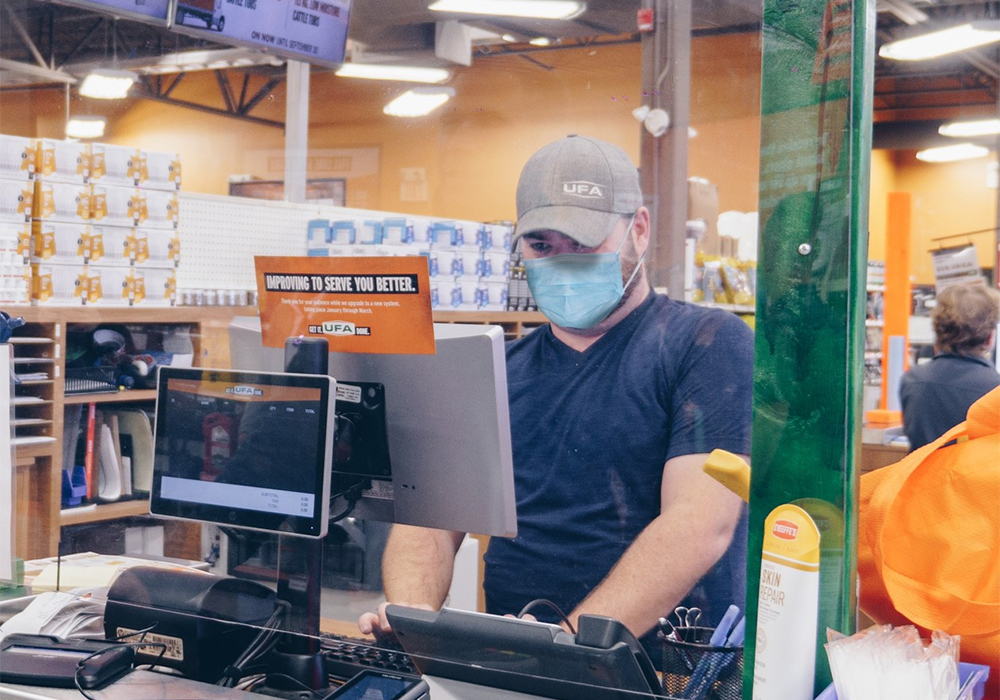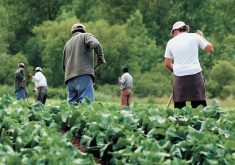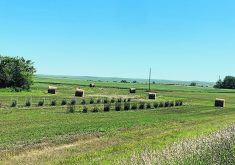One of Western Canada’s oldest agricultural co-operatives is not only giving its frontline employees a bonus for helping it weather the COVID-19 pandemic, it has donated more than $140,000 to help rural residents during the crisis.
“We want to give back to the communities in which our members live and which we serve,” said president and chief executive officer Scott Bolton of United Farmers of Alberta Co-operative Ltd.
UFA recently added $40,000 to more than $100,000 it has already donated during the pandemic to more than 200 rural organizations and initiatives, he said. These have ranged from food banks and shelters to community outreach programs.
Read Also

Farming Smarter receives financial boost from Alberta government for potato research
Farming Smarter near Lethbridge got a boost to its research equipment, thanks to the Alberta government’s increase in funding for research associations.
Bonuses ranging from about $500 to $1,000 were also recently given to frontline employees in UFA’s farm and ranch supply stores, he said. “I think our employees have truly appreciated it. It’s not even so much the dollars as the recognition that what they do matters in their communities.”
They have helped both UFA and rural residents make it through “the most unprecedented challenge we’ve ever faced, and specifically and most importantly, the frontline employee has gone through a lot since March, and it continues on,” said Bolton.
The co-operative employs about 1,050 people at about 150 locations ranging from retail stores and petroleum sites to fertilizer plants, he said. Although most of the locations are in Alberta, UFA also serves parts of Saskatchewan and B.C., he said.
The extra $40,000 for rural communities includes $15,000 for STARS air ambulance “to ensure they can continue caring for some of the most critically ill patients, many of whom are battling COVID-19,” said a UFA statement.
It also includes an additional $10,000 to the Do More Agriculture Foundation, which promotes mental well-being among Canadian producers. The remaining $15,000 is being donated to 4-H Canada’s Healthy Living Initiative, which provides resources and activities to improve things such as mental health.
“Supporting wellness in our communities now more important than ever, so UFA will fortify our investments in the area of mental health and wellness,” said the statement.
Early in the pandemic, UFA partnered with the Alberta Motor Transport Association to assemble free personal protective equipment kits for truck drivers, as well as donated 4,800 N95 masks to workers at Alberta Health Services.
Bolton said UFA has survived many crises since its birth more than a century ago in 1909, including the Great Depression of the 1930s.
It was at one point a political movement that formed Alberta’s provincial government from 1921 to 1935, subsequently focusing solely on business activities as a co-operative, he said. “We’re one of the very few that have survived from then until now.”
It currently has about 140,000 members, of which about 50,000 are active, he said.
About half of UFA’s business involves supplying fuel to the oil and gas sector, he said. Sales were hit by the downturn in the energy industry, which was slammed by plunging oil prices aggravated by the pandemic.

But the agricultural side of UFA has “done very well,” said Bolton. “Crops were good to very good to excellent depending where you were for many farmers, and obviously, prices are solid and the weather was pretty good, so all things considered, it was a good year and we benefited as an organization from that.”
There was a move in rural communities to support local businesses, “particularly those that handled themselves well in the pandemic by looking after their employees and looking after their customers in a safe manner, which I believe we did,” he said.
Sales of lumber and building packages also increased as people focused on project work during the pandemic, said Bolton. As a result, UFA has regularly achieved double-digit sales growth in most of its locations compared to 2019, with some stores seeing increases of more than 30 per cent, he said.
Although sales declined in March and April during the initial phase of the pandemic, “once spring planning started and we started to get used to our new normal, we found that our retail operations, the business levels increased and that’s been consistent – now going on six or seven months in a row of really solid sales growth,” he said.
Contact doug.ferguson@producer.com


















